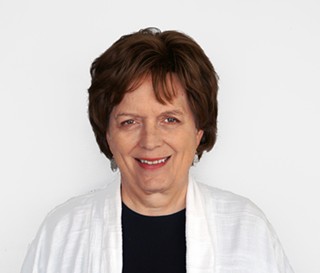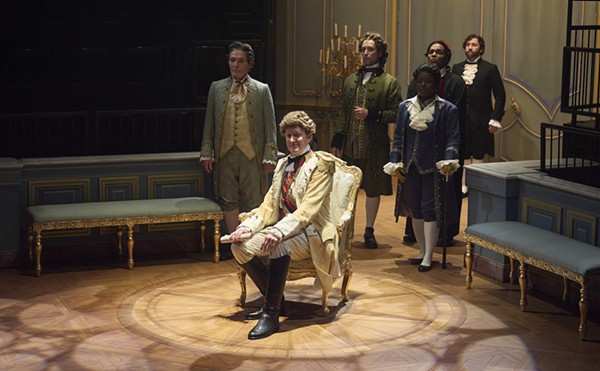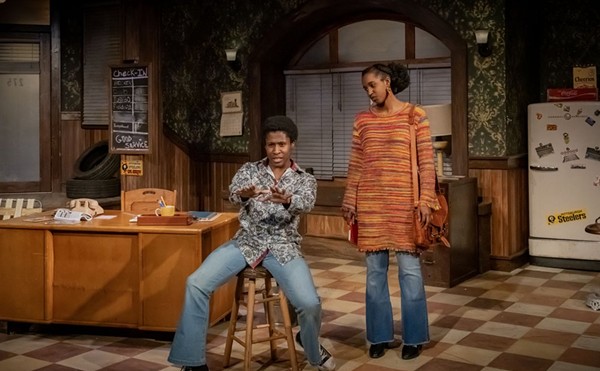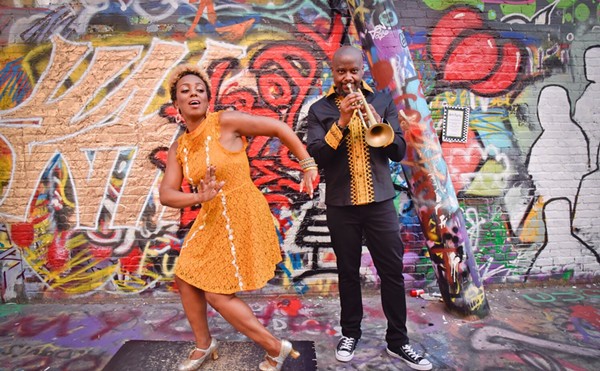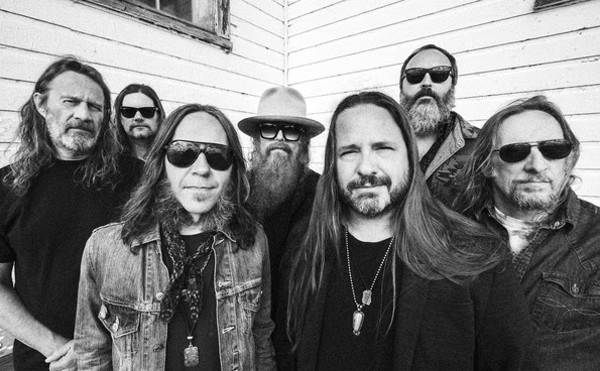This effective abuse of power was made famous centuries ago in the narratives of Plutarch, when he related the mythological rape of the Sabine women. As the yarn went, Rome was losing population and females were in short supply, so some horny Roman soldiers glanced over at the hotties down the road and figured, Hey, let's go get us some of that. This mass felony is also the central theme of Seven Brides for Seven Brothers, the theatrical interpretation of the 1954 film.
This iteration, now at Carousel Dinner Theatre, tries to capture some of the electric Michael Kidd choreography that made the movie so watchable (few who have seen it can forget the dance with the swinging axes). But despite consistently strong singing voices and a load of earnest effort, the production is sunk by leaden pacing and uninspired dancing, along with tunes and dialogue that rarely rise above the mundane.
Featuring original (but not engaging) music by Johnny Mercer and Gene de Paul, and new (but not hummable) numbers by Al Kasha and Joel Hirschhorn, the show reconfigures the maurauding Romans as seven brothers living on an isolated farm in 1850s Oregon, deprived of distaff companionship. Eldest brother Adam takes the lead by going into town, meeting a serving gal named Milly in the local slop house, and proposing marriage. Of course, she says okey-dokey, but she's surprised to find six of Adam's unkempt brothers sprawled around her honeymoon cabin.
Ever the good sport, Milly decides to help this hairy and smelly crew of testosterone junkies by feeding them, washing their long johns, and teaching them some basic principles of getting to -- or at least coming within sight of -- first base with women. While the scene where the young louts learn how to dance offers some pallid but predictable amusement, director and choreographer Chet Walker's failure of imagination is shown in the ensuing transition, when the stiff and scruffy guys exit and reappear a minute later as lithe chorus boys with razor-cut locks, colorful shirts, and leather dancing boots. As staged (and no doubt as written), there is no explanation for how six Ted Kaczynskis magically morph into six Tommy Tunes, but the comic possibilities boggle the mind.
That's just one of many potentially funny scenes that's either totally missed or not fully realized. As it turns out, the slick new dudes still can't quite get dates, so they resort to abducting the damsels they desire in the dead of night and hauling them back to the farm. Of course, the dastardly essence of kidnap and rape is soft-pedaled in favor of showing how goldurn nice these brothers are and how they just, by heck, want to bed down with some nice young fillies.
Such a tacky premise depends on brisk, crisp delivery to keep one distracted from some of the less appealing plot points. But director Walker allows the dialogue to proceed at the pace of soil erosion, with yawning gaps between lines sapping the energy within scenes. One hopes that he wasn't able to attend rehearsals in person and could only text-message his performance suggestions from a remote location. Walker's choreography is only marginally better, with the spotlight dance number in act one looking more like a round of tumbling exercises than a spirited dance fueled by raging frontier hormones.
Oddly, a song that is listed in the program is never sung by lead macho man Adam. Perhaps it's because this decidedly un-PC ditty includes lyrics such as "A woman ought to know her place/A place she's had since time began/A woman ought to know her place/Is behind her man." As appealing as this sentiment would be to Christian fundamentalists, and even though Adam ultimately sees the error of his ways in the reprise (also excised from this production), one guesses that the cringe factor outweighed loyalty to the libretto.
The highlight in the cast is Jennifer Byrne, who gives Milly a strong backbone and a powerful vocal presence. As Adam, Randy Bobish never seems quite certain whether he should be a retrograde caveman or a 19th-century metrosexual. The other brothers and brides -- with the exception of young and impulsive Gideon -- tend to blur together, when they could have become more individually interesting with a little help from book authors Lawrence Kasha and David Landay. But there are so many dead ends in this work that it might more accurately be titled Seven Weddings and a Funeral.

